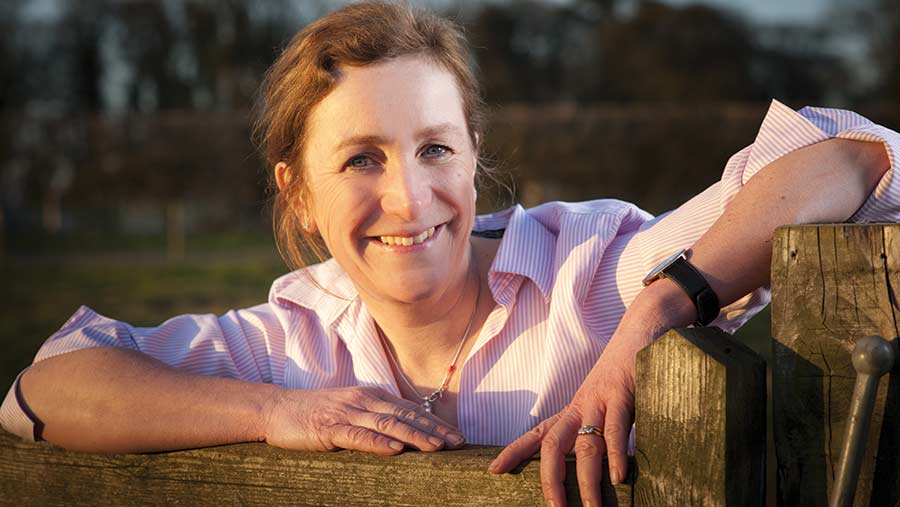Opinion: Why we’d never swap our country life
 © Jim Varney
© Jim Varney London. The streets are paved with gold, so they say. The city of opportunity. The eldest daughter has secured a full-time job as a commercial photographer in the Big Smoke and the challenge is on to find suitable accommodation.
We have spent so many hours on Spareroom.co.uk that I am now able to spot the grot by checking out the photos that are missing rather than the photos they show.
I have come to realise that a “shared” living room quite often means two hard chairs and a fold-down table in a flat for six.
As impoverished young people, the child and her friend are beginning to look further and further out of London in areas that were once notorious for riots: Brixton, Brick Lane, Docklands, Hackney. These areas have now been gentrified and are full of bijou boutiques and expensive, yet oh-so-trendy, bars.
The budget is £750/month each. The current husband was so aghast at her having to pay so much money in rent that he started looking for houses to buy.
After I’d picked him up off the floor at the prices of three-bed houses in undesirable areas (now “up and coming”, of course) we worked out that the rent we could squeeze out of these young people would only cover half of the mortgage.
The market is relying on undersupply, overdemand and the fact that “you can be sure” property prices will continue to rise.
See also: Learn from customers, colleagues – and practical jokes
The lack of housing has been all over the news recently. One 2,000-house development near Stratford-upon-Avon has recently been delayed. Originally billed by the Labour government as a potential eco-village that would be carbon neutral, this has been shelved in favour of new houses built in the traditional, energy-leaking way. What a shame.
I can understand why eco-building in Scunthorpe may be impractical, as the price of a three-bedroom house would hardly cover the extra insulation, but surely prices down south would warrant it?
Our two-year-old playbarn was built to exacting commercial building standards and hardly needs to be heated at all. The Scandinavians have been building carbon-neutral houses for years. Surely it’s time we did the same?
The developers are saying that housing is delayed, firstly through lack of materials (brick deliveries were taking six months) and secondly through lack of qualified labour. Do these big building firms run apprenticeship and training schemes?
Maybe they could set up a training centre in Scunthorpe or Scotland, where so many steel workers are being laid off, or in Redcar, or Glasgow? The son would like to build a container city in Newcastle – eco boxes for people to call home. They are cheap to build, can be well insulated, are modular and could house all those less-well-paid people who have to work in big cities.
Our housing search makes me really, really glad that we live in the country. We take for granted the clean air, lack of people, near-empty roads and people who greet each other.
When I first moved up here 26 years ago, I remember being astonished that the lady in the queue in M&S in Hull started talking to me. She was obviously mad. Then I realised that everyone did it – on the bus, in a train and in every queue. When I transported my newfound talent for “talking to strangers” down south, I was nearly arrested.
The lack of accommodation is certainly not restricted to London. The current trend among Lincolnshire farmers seems to be the purchase of holiday homes in Norfolk. “Why not?” you may ask.
The worry, as always, is that we price out the local folk and leave whole villages as ghost towns in midwinter and on weekdays.
The French, in some areas, have imposed regulations whereby if you purchase a holiday house, it must be let for a regulatory number of weeks a year. This does not release property for local people, but it does help prevent the ghost-town effect and helps to ensure year-round, rather than merely seasonal, jobs.
Living in the countryside is not without its downsides. Big farmhouses may look lovely from the outside, but no one realises the cost of replacing a double-hung sash window while working within planning guidelines that prevent you from installing double glazing that will make the house passably warm.
Living with a farmer ensures that the heating is not turned on until November (obviously not last year as “it was far too warm”) and is turned off promptly on 1 March despite snowstorms (“it’s spring now”).
The countryside may be incredibly quiet at times and everyone knows everyone’s business, but wouldn’t swap it for the world.
Farma conference
If you don’t have hundreds of acres to sell for much-needed residential development then you may consider coming along to the Farma conference, which runs from 28 February to 1 March in Chester, to find out how farm retailing could give your farm potential alternative income generation (it’s great fun, too).
Details are on the Farma website.
